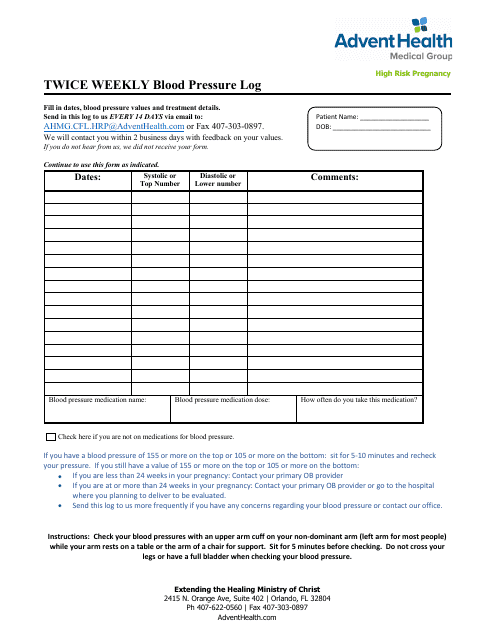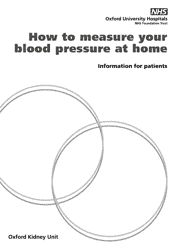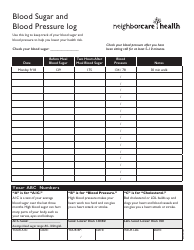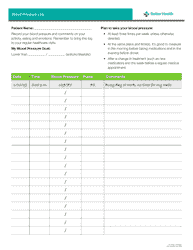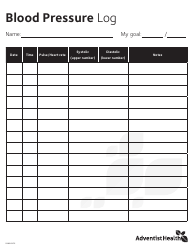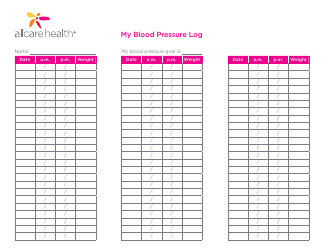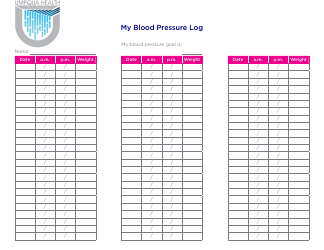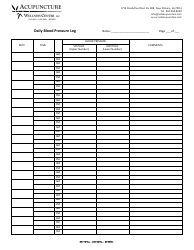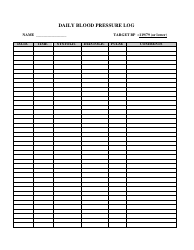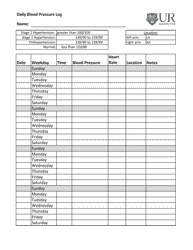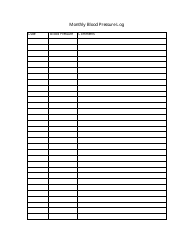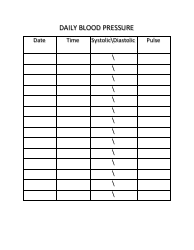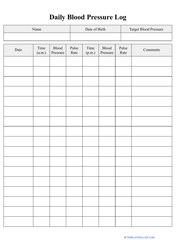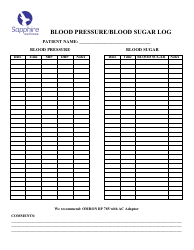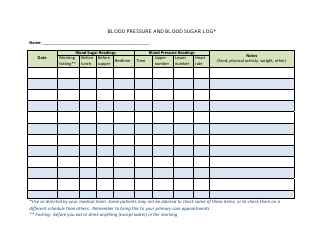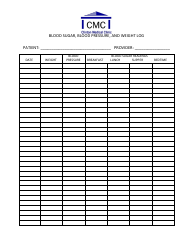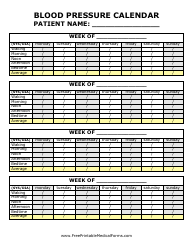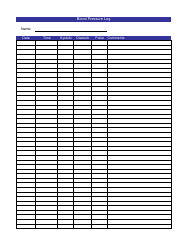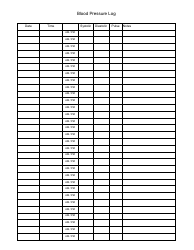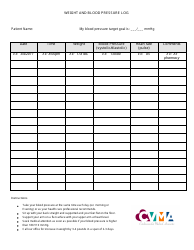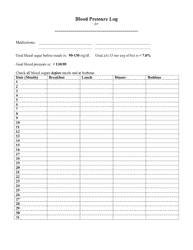Twice Weekly Blood Pressure Log - High Risk Pregnancy
The Twice Weekly Blood Pressure Log - High Risk Pregnancy is a document mainly used by expecting mothers who are at a high risk during their pregnancy. This document helps to track and record the blood pressure readings twice a week. Blood pressure monitoring is crucial during a high-risk pregnancy as it assists in detecting any potential complications such as pre-eclampsia or hypertension that can put both the mother and baby at risk. Therefore, this log can be a useful tool in managing the mother's health during her pregnancy. Regular monitoring and recording of blood pressure allow for early detection of irregularities, helps to see trends, and provides important data to healthcare professionals.
The Twice Weekly Blood Pressure Log - High Risk Pregnancy is typically filed by pregnant women who have been identified as having a high-risk pregnancy due to problems with their blood pressure. This type of log can help to monitor their condition and provide useful information to their healthcare providers. The log may be kept by the pregnant woman herself, a family member, or a healthcare provider such as a nurse or doctor.
FAQ
Q: What is a Twice Weekly Blood Pressure Log for High Risk Pregnancy?
A: A Twice Weekly Blood Pressure Log for High Risk Pregnancy is a document or a chart used by expecting mothers, deemed to be in high-risk pregnancy, to record their blood pressure levels twice a week. This log assists healthcare providers in monitoring the mother's health condition more carefully.
Q: What is a high-risk pregnancy?
A: A high-risk pregnancy is a condition where the mother or the baby has increased chances of health problems. Factors that may contribute to high-risk pregnancy include advanced maternal age, lifestyle choices, multiple births, and pre-existing health conditions like high blood pressure or diabetes.
Q: Why is monitoring blood pressure important during a high risk pregnancy?
A: Monitoring blood pressure during a high-risk pregnancy is important because it can detect potential problems early on, such as preeclampsia, a pregnancy complication characterized by high blood pressure and signs of damage to another organ system, often the liver and kidneys. Regular blood pressure checks allow prompt diagnosis and treatment, minimizing risks to both the mother and the baby.
Q: How to maintain a weekly blood pressure log during pregnancy?
A: Maintaining a weekly blood pressure log during pregnancy involves recording your blood pressure readings at least twice a week at the same time each day. You may need to measure your blood pressure more frequently if advised by your healthcare provider.
Q: Can high blood pressure be prevented during pregnancy?
A: While it's not always possible to prevent high blood pressure during pregnancy, some practices can help manage your risk. These include regular prenatal visits, eating a balanced diet, staying active, avoiding alcohol, tobacco and illicit substances, managing stress and taking prescribed blood pressure medication safely under the guidance of your healthcare provider.
Q: Is it safe to use a home blood pressure monitor for pregnant women?
A: Yes, it's safe to use a home blood pressure monitor for pregnant women. However, it's important to ensure that the device is approved for use during pregnancy and that you've been properly trained on how to use the device. Consult your healthcare provider for guidance.
Q: Can high blood pressure affect the baby during pregnancy?
A: Yes, high blood pressure can affect the baby during pregnancy. It can restrict blood flow to the placenta, which means the baby might receive less oxygen and fewer nutrients, which can result in a low birth weight or premature birth. In serious cases, high blood pressure can lead to preeclampsia, putting both the mother's and baby's health at risk.
Q: What should a pregnant woman do if her blood pressure readings are consistently high?
A: If a pregnant woman's blood pressure readings are consistently high, she should seek medical attention immediately. Untreated high blood pressure can lead to complications like preeclampsia, placental abruption, and preterm labor. Early detection and appropriate management can significantly improve health outcomes for the mother and baby.
